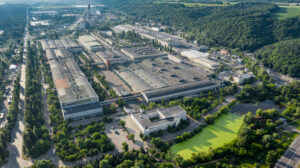
The volume of marketable products of Kyiv Cardboard and Paper Mill (Kyiv Pulp and Paper Mill, Obukhiv, Kyiv region), the industry leader in Ukraine by this indicator, amounted to UAH 3 billion 793.5 million in January-June 2-24, which is 3.3% more than in the same period in 2023, according to statistics from Ukrpapir Association.
As reported, the mill moved to positive production dynamics in the first quarter (an increase of 0.2%), while in January-February there was a decrease of 2.4% compared to the same period last year.
According to UkrPapir’s statistics provided to Interfax-Ukraine, in physical terms, the plant’s production of corrugated boxes increased by 1.4% to 109.7 million square meters, which remains the best in the industry.
Cardboard output decreased by 4.5% to 77.9 thousand tons, including a 4.3% decrease in containerboard production to 64 thousand tons and a 5.4% decrease in boxboard production to 13.9 thousand tons.
The output of base paper for sanitary and hygiene products increased by 8.5% to 22.9 thousand tons, and the output of toilet paper in rolls increased by 7% to 129.3 million units.
The plant is a stable leader in the production of toilet paper in Ukraine: in the first half of 2024, the industry’s main enterprises produced a total of 308.2 million rolls, up 6.6%.
According to the association’s data from the main industry players, in January-June 2024, Ukraine’s paper and cardboard production increased by 5.7% compared to the same period in 2023, to 290 thousand tons, and cardboard boxes by 19.4%, to 283.3 million square meters.
Kyiv Pulp and Paper Mill is the parent company of the eponymous group of companies, one of the largest cardboard and paper products producers in Europe with a staff of over 2,500 people.
It has, among other things, a 240,000-tonne-per-year cardboard production facility and a 355 million-square-meter corrugated packaging plant, as well as a production facility for the production of base paper and finished products with an annual capacity of 70,000 tons of base paper.
As reported, in 2023, the plant produced products worth UAH 7 billion 568 million, up 1.8% year-on-year.
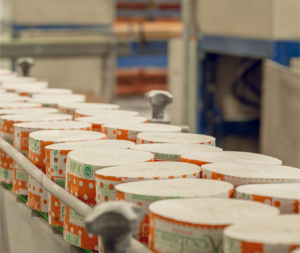
In January-June 2024, Kokhava Paper Mill (KBF, Lviv region), which produces sanitary paper products, increased its production by 54.5% year-on-year to UAH 869.64 million, according to statistics from UkrPapir Association.
In the first five months of this year, the mill’s production growth rate was 45.1% compared to the same period last year.
According to UkrPapir’s statistics provided to Interfax-Ukraine, the company’s production of the base paper for sanitary products increased by 30.7% to 27.2 thousand tons.
Production of toilet paper in rolls increased by 1.4% to 68 million units. KBF is confidently ranked second in terms of its output after Kyiv pulp and paper mill.
As reported, in October 2023, Kokhava Pulp and Paper Mill put into operation a paper machine for the production of cellulose base paper (previously, it produced products only on a waste paper basis). To organize such production in 2021, the CF attracted a EUR 13.8 million loan from the EBRD.
Operating since 1939, the Kokhavynsk Pulp and Paper Mill produces base paper for sanitary and hygiene products, as well as toilet paper and paper towels. Before the new machine was put into operation, the mill had two paper machines with a total capacity of 40 thousand tons of base paper per year.
In 2023, the plant increased its production by 18% compared to 2022, to UAH 1 billion 151.2 million, and its net profit increased 2.7 times to UAH 137 million.
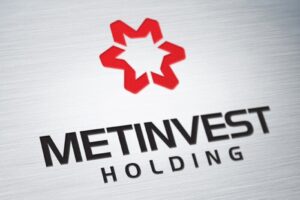
Metinvest Mining and Metallurgical Group plans to carry out a large-scale green transformation of its Ukrainian assets – GOKs, Kametstal and Zaporizhstal – worth about $9 billion within 5-10 years after the end of the war.
According to a report by dsnews.ua, this will require external financing.
It is specified that as soon as the hostilities end, the group will increase production (currently, its enterprises are 65-70% utilized), so the equipment needs to be prepared for operation in advance, which is being done now.
At the same time, the strategy remains unchanged: to create a global company with Ukrainian roots based on green and digital transformation of production facilities. This requires high-quality raw materials, semi-finished products and sufficient clean energy sources.
Meanwhile, the large-scale green modernization of enterprises in Ukraine has been put on hold due to an acute shortage of electricity of any origin. However, Metinvest can help develop Ukrainian assets by investing in cleaner production. For example, the construction of a green rolling plant in Italy with a capacity of about 3 million tons of products per year will increase the utilization of the group’s Ukrainian iron and steel plants, which can no longer sell products in Ukraine after the occupation of Mariupol’s steel mills. The Italian plant is to be built jointly with partners in three to four years with up to $2 billion of credit and partnership funds.
In addition, the GOKs that receive orders will be able to modernize their production to produce high-quality pellets. In particular, Northern GOK is currently competing in the European market thanks to its upgraded production of pellets with improved characteristics.
Metinvest’s strategy for transitioning to green steel production long before the war included the conversion of blast furnaces at its steelmaking facilities to DRI (direct reduction of iron) technology. This process requires improved pellets as raw materials. Successful tests of the production of such DRI pellets were carried out at Central GOK at the beginning of the war.
The war has put major strategic projects on hold, but the Group is responding quickly to adapt its investment program to maintain efficient production, primarily by investing in existing facilities that need to be modernized. Since the beginning of the war, Metinvest has invested over $300 million annually.
In 2023, Zaporizhstal and Kametstal overhauled blast furnaces. In addition, Zaporizhstal overhauled its rolling mill equipment and Kametstal overhauled its coke oven batteries. In total, UAH 23 billion has been invested in the modernization of these two enterprises over the past two years.
“Metinvest is also consistently launching new coking coal longwalls at Pokrovskoye Coal Group. At the beginning of the year, the 11th longwall for coking coal production in Block 10 of the Pokrovskoye Mine Administration was launched.
In addition, targeted investments are important. For example, the modernization of the roasting machine in the pellet production shop at Pivdennyi GOK in 2023 helped to establish the production of homogeneous pellets with an iron content of 65%, which allowed the GOK to maintain a competitive position in the European iron ore market.
This year, the company plans to invest $320 million in capital and about $350 million in operating investments in equipment and work sites. The priority is to repair blast furnaces and sintering machines, maintain the GOK’s equipment and develop the mine management department in Pokrovsk.
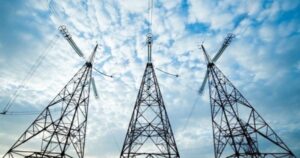
A EUR100 million grant agreement has been signed by Volodymyr Kudrytskyi, Chairman of the Board of NPC Ukrenergo, and Lorenz Gessner, Head of the Representative Office of the German state development bank KfW in Ukraine, the company said.
According to its Telegram post on Friday, the signing took place in Kyiv on Thursday in the presence of Deputy Energy Minister Roman Andarak and members of the EU Delegation to Ukraine.
It is noted that the European Commission has authorized KfW to provide Ukrenergo with funds from the EU’s special budget program Ukraine Investment Facility and to ensure the financing and implementation of a number of priority energy projects.
These include the modernization of high-voltage substations in the western regions of Ukraine and the development of interconnectors connecting it to the power system of continental Europe, as well as the repair and restoration of equipment destroyed or damaged by Russian shelling at high-voltage substations, and the purchase and supply of new equipment.
In addition, part of the funds should be used to strengthen the physical protection of Ukrenergo’s substations.
NPC noted that this grant is the second phase of the target program “Reconstruction and Restoration of Ukraine’s Electricity Transmission Infrastructure”, as the company signed an agreement with KfW on the first phase of the program worth EUR 15 million at the Berlin Conference on the Restoration of Ukraine-2024 in June.
In total, since the beginning of the full-scale war, Ukrenergo has attracted EUR324 million with the support of KfW, and the total amount of international assistance attracted amounted to EUR1.5 billion, the NPC summarized.

Ukraine has simplified the opening of international bus routes with the Czech Republic, exempting carriers from the need to confirm the presence of a parity partner from a neighboring country, the Ministry of Communities, Territories and Infrastructure (MinRestore) has announced.
According to the report, the period for coordinating the route and issuing a permit will not exceed four months. Communication channels have been established between the countries specifically for the opening of routes.
The relevant changes were agreed upon at a meeting of the joint commission between the Ministry of Reconstruction and the Ministry of Transport of the Czech Republic.
“The growing demand for bus transportation requires the state to ensure an effective process of opening new routes so that the market can quickly respond to passenger demand. The Czech Republic is one of the most popular countries in terms of bus service, so together with our Czech colleagues we have simplified the procedure for opening routes,” Deputy Minister of Community Development, Territories and Infrastructure Serhiy Derkach said in a statement.
He expressed hope that the decision would help improve transport accessibility, increase passenger traffic and help boost business.
The report indicates that the Czech Republic became the first country with which Ukraine ensured full compliance of regular bus routes.
This year, agreements on non-parity passenger transportation were also signed with Slovakia.
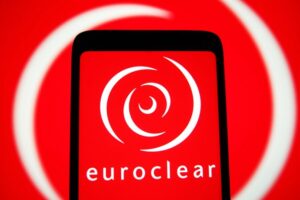
In July 2024, the international depository Euroclear will make the first contribution of approximately EUR1.55 billion to the European fund for Ukraine, according to the company’s report.
In the first half of 2024, Euroclear received EUR3.4 billion in interest income from investing blocked Russian assets.
In 2023, these revenues amounted to about EUR4.4 billion, in 2022 – EUR821 million.
Euroclear’s total interest income in January-June this year amounted to EUR4 billion.
The company will also pay taxes on income received from Russian assets in January-June in the amount of EUR836 million.
Thus, Euroclear’s net profit attributable to the frozen assets of the Central Bank of the Russian Federation amounted to EUR760 million in the first half of the year.
Euroclear’s balance sheet as of the end of June 2024 amounted to EUR207 billion, of which EUR173 billion are attributable to Russian assets under sanctions.
Effective February 15, 2024, the EU Council adopted a Regulation requiring central securities depositories that hold reserves and assets of the Bank of Russia to apply special rules to cash balances accumulated due to restrictive measures. These CSDs, including Euroclear, must account for and manage such extraordinary cash balances separately from other activities, must retain net income separately, and must not dispose of the net income (e.g., as dividends to shareholders).
Euroclear’s underlying net profit, which excludes income from the blocked Russian assets, increased by 7% year-on-year in January-June to EUR602 million.
Underlying operating income increased by 5% to EUR1.45 billion.
In particular, revenues from core activities amounted to EUR865 million compared to EUR838 million a year earlier, while interest, banking and other income increased to EUR586 million from EUR539 million.